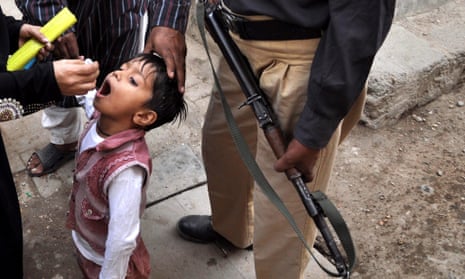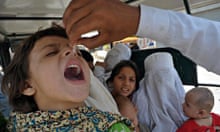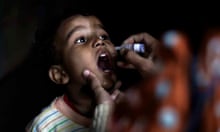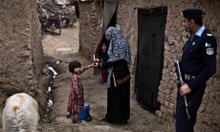International health officials in Pakistan believe they can resolve the country’s polio crisis in the coming year, despite the number of cases of the crippling disease soaring to their highest level in 14 years.
So far this year, 262 cases have been detected in the country, including in Swat, an area that had been free of polio for five years.
The setback in the effort to eradicate polio comes despite a big campaign that has seen millions of vaccines administered to children to protect them from a disease that can kill or permanently paralyse limbs.
But Elias Durry, one of the World Health Organisation’s top officials in Pakistan, said the disease would “most probably be fixed in the first half of 2015”. He said there was new hope for the programme after the army launched operations this summer in North Waziristan, wresting control of a tribal area bordering Afghanistan that had long been controlled by militants, who banned all vaccinations.
“The numbers look bad, but it isn’t hopeless,” Durry said. “We no longer have kids that are completely unreachable that allowed the virus to circulate in a way that is not controllable. If we do good quality work nationwide there is no reason not to control the virus.”
Even if significant progress is made in the coming winter months – traditionally a period of low disease transmission – it will be many years before the country could be officially certified polio-free, Durry said.
Pakistan is one of only three countries, with Afghanistan and Nigeria, where the virus remains endemic.
The long-anticipated assault on North Waziristan displaced more than 1 million civilians, who flooded out of the area, many carrying the polio virus with them.
Despite efforts to vaccinate them as they left the region and entered nearby camps, it is feared some families spread the virus further as they moved deeper into the rest of the country.
The virus is transmitted when the faeces of carriers contaminates water supplies, particularly in the slums of densely populated cities.
In recent months cases have sprung up in Khyber, an area of recent military activity, and in the southern megacity of Karachi where a four-day drive to vaccinate 800,000 children has just begun.
On Monday, polio teams returned for the first time in more than two years to South Waziristan, where militants had also banned vaccinations in what they said was retaliation for US drone strikes.
But even with access to the children of Waziristan now possible, tackling the disease remains extremely hard in a country where there is widespread suspicion of a programme so enthusiastically supported by foreign organisations.
Persistent public awareness campaigns have not fully quashed popular fears that the drops given to children – a solution of highly weakened polio virus – are part of a western conspiracy to make Muslims infertile.
The Pakistani Taliban have attacked and killed health workers who conduct door-to-door campaigns, forcing the government to mount massive security operations during major vaccination drives.
On Monday, a Taliban splinter group called Tehreek-e-Taliban Pakistan Jamaat-ul-Ahrar said it was responsible for a drive-by shooting attack that injured one health worker in Khyber Pakhtunkhwa province. The group’s spokesman said he would soon produce a “policy statement” outlining why the vaccine is “dangerous to health and how it is against Islam”.







